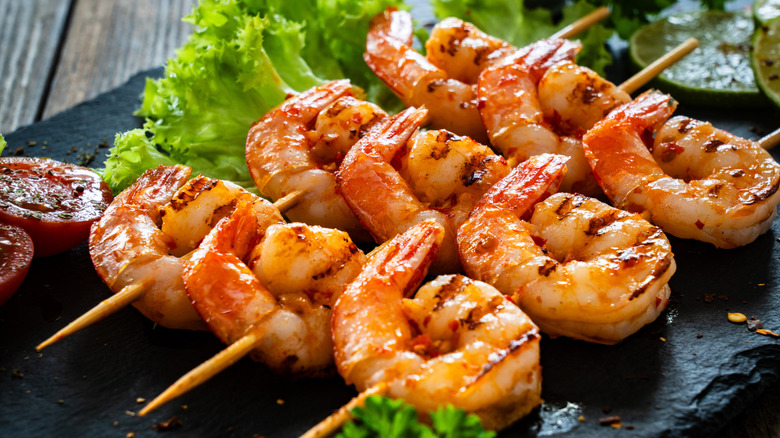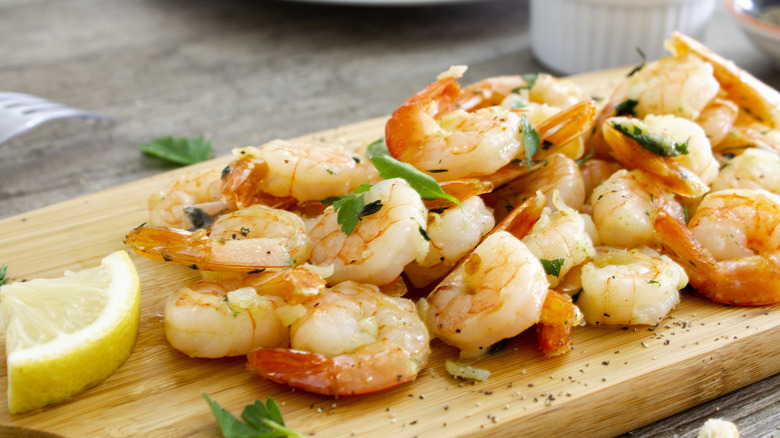Dry Brining Shrimp Is Useful, But Another Step Ensures Top Flavor
Whether you're grilling shrimp with its shell on or poaching it for a shrimp cocktail, the reality is that mushy, watery, and flavorless shrimp is no fun for anyone. There is a quick and easy way to give your shrimp's flavor and texture a little extra oomph regardless of how you are preparing it: dry brining.
Yet, there's one more consideration that should take priority over dry brining. Pierre Albaladejo, Executive Chef at Park Hyatt Aviara, told us that he practically never dry brines his shrimp. Instead, he focuses on buying the best seafood he can. "The first thing I will recommend is to buy good quality shrimp first over dry brining," chef Albaladejo explains. Choosing a high-quality, sustainable source of shrimp will ensure remarkable flavor without necessarily having to employ extra techniques.
Still, many argue that there is nothing wrong with dry brining shrimp of any quality to help ensure a flavorful, moist, and delicious experience. For every pound of shrimp prepared, combine 1 teaspoon of kosher salt and 1/4 teaspoon of baking soda for the brine. After brining the shrimp and letting it rest in the fridge for 15 minutes to an hour, it is ready to poach, grill, or sauté.
Brine it on!
Salt is a powerhouse seasoning. Not only is it a key component when using apples in baking, but it is also a must-have ingredient for brining. The surface-level benefit to using salt to bring shrimp is that it will season the shrimp. However, salt is also important because of its ability to help the shrimp retain moisture. Surely nothing is more unpleasant than chewing dry shrimp.
Meanwhile, baking soda is more than a kitchen-cleaning pantry staple. As the heat of your chosen cooking method makes the proteins of shrimp contract — and potentially squeeze out water as it cooks — alkaline baking soda can help ensure that some space remains between those proteins. That space helps the shrimp maintain its moisture instead of drying out. Dry brining the shrimp can allow it to maintain a crisp, firm texture without sacrificing moisture.
If you're pan-searing your shrimp, you can also sprinkle some sugar on top, then pat it dry right before cooking to get a little extra browning while also highlighting the natural sweetness of shrimp. Just keep in mind that overcooking the shrimp will result in excessive dryness. Keep an eye on your time, too, as letting it rest in the brine for too long will make it gummy and unpleasant.

